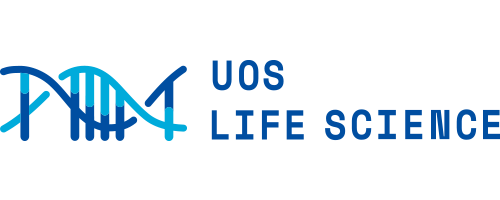[Regular Seminars] 2025학년도 2학기 생명과학과 2차 세미나
- -Speaker : 정인경 교수
- -Topic : Decoding 3D genome regulation
- -Date : 2025.10.21 (화) 10:30 ~
- -Location : 자연과학관 101호
- Abstract_InkyungJung.docx (19.0 KB)
- CV_InkyungJung.pdf (132.2 KB)
Epigenetic gene regulation is a fundamental process that governs cellular identity during development, differentiation, and disease progression. Among its key mechanisms, the three-dimensional (3D) chromatin architecture has emerged as a critical layer of regulation, enabling physical interactions between distant DNA elements such as cis-regulatory elements (CREs) and promoters within the nuclear space. Understanding the organizing principles of 3D chromatin and its role in transcriptional control offers new opportunities to address long-standing questions in biology and disease. Equipped with cutting-edge epigenomic technologies, my laboratory aims to map the genome-wide landscape of 3D chromatin structure and elucidate its functional impact on gene expression across diverse cellular contexts. Through integrative approaches combining Hi-C, ChIP-seq, ATAC-seq, RNA-seq, single-cell RNA-seq, single-cell ATAC-seq, and deep-learning–based computational analyses, we dissect the mechanistic principles underlying chromatin organization and gene regulation.
In our efforts to understand how 3D chromatin architecture contributes to complex human diseases, we have applied single-cell multi-omics profiling to both normal and patient-derived specimens. This strategy has enabled us to identify putative target genes influenced by disease-associated genetic variants (Nucleic Acids Res. 2018; Nat. Genet. 2019; Sci. Adv. 2023) and to uncover disease-specific regulatory mechanisms (Sci. Immunol. 2020; Nucleic Acids Res. 2021; Exp. Mol. Med. 2022; Haematologica 2023; Cell Rep. 2023; Nat. Commun. 2025a,b). More recently, we have explored the dynamic interplay between chromosomes, regulatory elements, and nuclear bodies such as speckles. This line of investigation led to the discovery of Myc-associated zinc finger protein (MAZ) as the first structural factor mediating chromosome–speckle interactions (Nucleic Acids Res. 2023) and driving chromatin-condensate interplay during cancer progression (Nat. Commun. 2024). In parallel, the development of new single-cell multi-modal technologies, coupled with deep-learning frameworks, is allowing us to resolve 3D gene regulation at unprecedented resolution (Nat. Biotechnol. 2025).
In this talk, I will present how our integrated experimental and computational approaches are advancing the understanding of disease-specific gene regulation through the lens of 3D chromatin architecture.
- Abstract_InkyungJung.docx (19.0 KB)
- CV_InkyungJung.pdf (132.2 KB)


